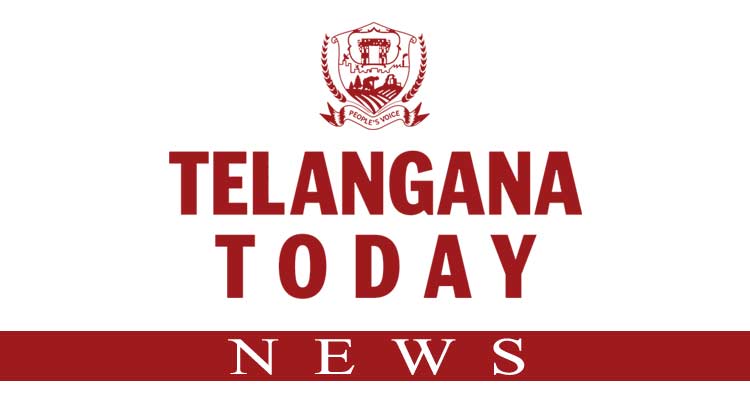‘We Stick To Integrity, Innovation, Inclusivity’: IIM Sambalpur Director On Rise In NIRF Ranking
By Archit Gupta,News18
Copyright news18

IIM Sambalpur has recorded the sharpest climb among all IIMs in the NIRF 2025 rankings, jumping 16 places to secure the 34th spot in the management category. This marks a significant improvement from its 50th rank last year.
Speaking to News18 about the institute’s success, Professor Mahadeo Jaiswal, Director of IIM Sambalpur, said, “We stick to our core values of Integrity, Innovation and Inclusivity, while leveraging technology, experiential learning, and industry partnerships to create a truly future-ready management education.”
In an exclusive conversation, he outlined the key reforms, initiatives, and strategies that powered this remarkable turnaround.
Here are the edited excerpts from the interview:
1. IIM Sambalpur has recorded the steepest climb in NIRF 2025 rankings among all IIMs. What concrete reforms or initiatives made this turnaround possible?
IIM Sambalpur’s remarkable jump in the NIRF 2025 rankings reflects the institution’s focus and bold reforms, plans, and forward-thinking initiatives around academics, research, industry partnerships, and inclusiveness. We stick to our core values of Integrity, Innovation and Inclusivity. We have also bolstered our research output through high-quality publications, case studies, and impactful projects.
In addition, in academics, we have leveraged innovative pedagogy around experiential learning and emerging technologies such as a tie-up for AI integration in learning methodology with Breakout Learning. The academic front has seen the introduction of dual-degree and executive PhD programmes under the framework of the NEP 2020, and the integration of experiential learning, simulation, live projects, and cutting-edge tech like AI and data analytics into the teaching methodology.
Additionally, research productivity has been enhanced through high-impact publications, case writing, and the establishment of centres of excellence such as the Rangavati Centre of Excellence in Cultural and Sustainable Management and the Incubation Centre (I-Hub Foundation). The institute has deepened its engagement with industry through Management Development programmes. In the sphere of regional development, IIM Sambalpur has taken the lead in training school principals and Navodaya Vidyalaya heads, while in entrepreneurship development, it has created impactful platforms and training opportunities.
Notably, initiatives such as the Small Business Management Training Program for Odisha’s master weavers, undertaken in collaboration with SIDBI, Aditya Birla, and Flipkart, also exemplify its commitment to empowering local communities and fostering sustainable growth.
2. Being one of the newer IIMs, how do you balance the need to compete with established IIMs while ensuring access and inclusivity for students from diverse backgrounds?
In IIM Sambalpur, we focus towards providing right exposure through diverse classrooms and inclusiveness as our strengths. We are one of the first IIMs to adopt 50% gender diversity in admissions, establishing the trend for others. IIM Sambalpur provides a relaxation of 5% in the overall cut-off for female candidates when calling them for the Personal Interview (PI) stage, a policy pioneered by the institute in 2017 to increase gender diversity in its MBA programmes. This initiative has significantly boosted female enrollment, with one recent MBA batch reaching 76% female students, though the exact percentages can vary by year and specific program.
We also open doors to students from diverse socio-economic and geographic backgrounds, particularly from small towns and underrepresented groups. Concurrently, our academic intensity, corporate interface, and global collaborations make sure that our students get world-class exposure and are globally competitive.
3. Technology, AI, and sustainability are redefining management education in India. How is your curriculum adapting to these shifts?
At IIM Sambalpur, we believe that the leaders of tomorrow must be tech savvy, sustainability-oriented, and understand the need to have inclusive work environment. Our curriculum is dynamic and keeps changing to incorporate courses on Artificial Intelligence, Machine Learning, Business Analytics, and Digital Transformation, in addition to infusing sustainability and ESG values.
IIM Sambalpur’s curriculum is designed with a unique proposition that blends technology, sustainability, and policy into management education. By incorporating AI-driven learning methodologies, the institute equips students with future-ready analytical and decision-making skills. Specialised courses in sustainability and public policy enable them to understand the broader societal and environmental responsibilities of business.
At the same time, the institute’s strong focus on leadership development ensures that its graduates emerge not only as competent managers but also as torchbearers of sustainable and inclusive business growth.
ALSO READ | NIRF 2025 Ranking: IIM Sambalpur Jumps 16 Spots To 34th Rank In List Of Top Management Institutes
4. Strong industry engagement is often a differentiator in B-school success. How is IIM Sambalpur deepening its corporate partnerships for placements, research, and internships?
IIM Sambalpur’s I-Hub Foundation fosters entrepreneurship by incubating 28 startups and running an Acceleration Program to help ventures scale. It supports startups across sectors like fintech, edtech, agriculture, sustainability, women-led ventures, and social impact, providing mentorship, seed funding, investor access, and industry partnerships.
The program includes workshops, scaling strategies, market access, and networking with corporates and VCs, ensuring startups move from idea validation to market-ready businesses. Students also participate in business plan competitions, hackathons, and programmes with partners like SIDBI, Flipkart, and Aditya Birla, gaining real-world exposure and opportunities to present ideas at conclaves like Udbhavanam and Marmagya.
Entrepreneurship is integrated into the curriculum through courses on design thinking, digital innovation, and sustainable business models, while global collaborations expose students to international startup ecosystems.



